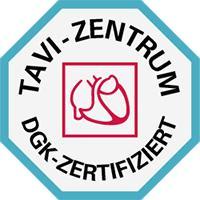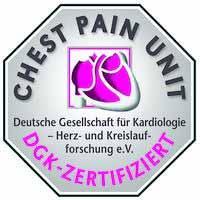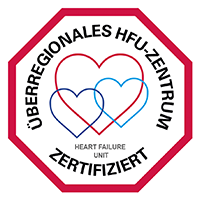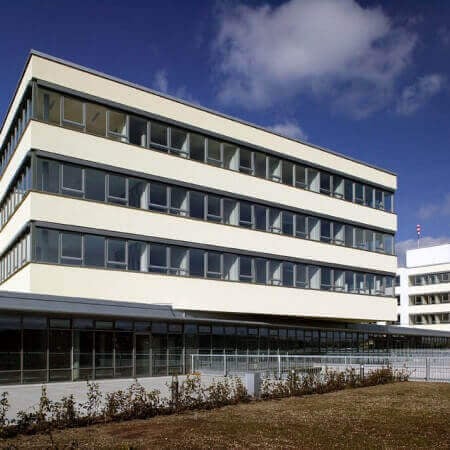Bradycardia is a decrease in heart rate to less than 60 beats per minute. The causes of its development can be both physiological and pathological. The treatment of pathological bradycardia abroad involves the use of minimally invasive interventions with pacemaker implantation. The surgical intervention restores the heart rate, eliminates symptoms, fainting, and reduces the risk of sudden cardiac death.
Content
- Causes of bradycardia
- Diagnostics
- Drug therapy
- Permanent cardiac pacing
- Indications for pacemaker implantation
- Why is it worth undergoing treatment in Europe
- Treatment in Europe at an affordable price
Causes of bradycardia
Bradycardia is not a separate disease, but a syndrome that can develop due to a huge number of a wide variety of pathologies.
Bradycardia can have both physiological or pathological causes. The very fact of a decreased frequency of heart contractions does not indicate a disease. For example, professional athletes always have a slow heart rate. In such people, the heart pushes out a large amount of blood within a single contraction, so the heart muscle does not need to contract too often to ensure effective hemodynamics.
Non-physiological, but reversible causes of bradycardia include:
- Increased vagal tone – it is often observed in children and young people, but disappears with age (usually does not affect hemodynamics, does not cause any symptoms and does not require any treatment).
- Intake of medicines that slow the heart rate (for example, beta-blockers).
- Low or high blood potassium levels.
- Hypothyroidism (thyroid hormone deficiency).
- High sensitivity of the carotid sinus.
Bradycardia is considered pathological, if it disrupts the effectiveness of hemodynamics (blood circulation). With the slow heart rate, the metabolic oxygen requirements of tissues are not fully met. First of all, the brain suffers, and therefore slow heart rate may cause the attacks of dizziness and fainting.
The main mechanisms for the development of bradycardia are:
- Impairment of the formation of an impulse in the sinus node.
- Heart block – an impulse is formed, but it does not spread through the heart due to damage to the cardiac conduction system.
The sinus node or the cardiac conduction system can be damaged by a variety of pathologies. These include:
- Ischemic heart disease and myocardial infarction.
- Inflammatory diseases: myocarditis, pericarditis.
- Autoimmune lesions of the cardiac conduction system (a common cause of bradycardia in children).
- Previous heart interventions.
- Radiation therapy.
- Arterial hypertension.
- Infiltrative diseases with the heart lesion: amyloidosis, hemochromatosis, sarcoidosis and others.
- Valvular heart disease, if foci of fibrosis and calcification affect the heart muscle.
Diagnostics
With constant bradycardia, it is not difficult to determine the very fact of its presence: for this purpose, it is enough to measure the pulse.
One of the doctor's main tasks is to determine the causes of bradycardia and the mechanism of its development. The main diagnostic method is electrocardiography (ECG).
Bradycardia can sometimes be mild or unstable. In this case, doctors need to "catch" it and prove the interconnection between the slow heart rate and the symptoms that arise. Doctors use long-term heart rate monitoring. They carry out 24-hour ECG recording, sometimes within a few days. Some patients use loop recorders, which record episodes of bradycardia over several weeks or months.
Additional diagnostic methods can be as follows:
- Electrophysiological study – transesophageal or intracardiac (only if indicated).
- Echocardiography – the test is used to determine the main heart pathology, which led to the development of bradycardia, to assess the state of the valve apparatus, ventricular function.
- Tests with physical or pharmacological stress.
Stress tests are often used to distinguish reversible heart blocks from irreversible ones. In case of the reversible heart block, its symptoms disappear, and the heart rate increases under stress. At the same time, in case of irreversible block caused by damage to the cardiac conduction system, the heart rate cannot accelerate enough to meet the metabolic requirements of tissues for oxygen, and the signs of block do not disappear on the electrocardiogram.
Drug therapy
Drug treatment options for bradycardia are limited. The peculiarity of the medicines is that they work only for a few hours, sometimes even for a few minutes. Although medicines can increase the heart rate, the effect is temporary. This means that to achieve a consistently high heart rate in case of bradycardia, medicines must be taken for life. However, the medications that increase the heart rate are not safe. They are not suitable for lifelong use.
Thus, drug therapy for bradycardia can make sense in the following cases:
- Acute life-threatening conditions – a critically low heart rate, which needs to be urgently increased.
- Reversible causes of bradycardia – doctors for some time maintain a normal heart rate with medicines, and then the heart rate normalizes on its own or under the influence of treatment.
Sometimes bradycardia is temporary and may disappear on its own. For example, a low heart rate may be associated with cardiac edema after surgery or an overdose of beta-blockers that are used for the treatment of cardiovascular disease. In this case, it is enough to wait a little, and the heart rhythm will be restored.
Drug therapy makes sense for diseases, which cause reversible bradycardia. For example, in case of hypothyroidism, doctors prescribe hormone replacement therapy with thyroid hormones, and in case of water-electrolyte imbalances, intravenous infusions of crystalloid solutions are used.
Permanent cardiac pacing
The main treatment for symptomatic irreversible bradycardia is a pacemaker implantation. If the heart can no longer produce electrical impulses, a pacemaker will take over this function instead. If the heart cannot conduct impulses, this is also not a problem, since the pacemaker leads with constant pacing can be placed in several areas of the heart.
The essence of the treatment method is that an artificial pacemaker is implanted into the patient's body. The body of the device is placed under the skin of the thorax. The pacemaker leads are inserted into the heart through the blood vessels. The number of the pacemaker leads can vary from one to three. Depending on their number, cardiac pacing is called single-chamber, dual-chamber or triple-chamber.
Single-chamber pacing involves the placement of only one pacemaker lead, which is implanted in the right atrium, less often in the right ventricle of the heart.
Atrial single-chamber pacing can be used in cases when impulse formation in the sinus node is impaired. Normally, this is the main pacer of the heart. It generates impulses with a frequency of 70-90 beats per minute. In dysfunction of this node, the heart rate decreases. However, electrical pacing solves this problem, provided that the impulses pass normally through the heart. For atrial pacing, it is important that atrioventricular conduction is maintained, namely, that impulses travel normally from the atria to the ventricles.
Single-chamber pacing with the introduction of the pacemaker lead into the right ventricle can rarely be used. It can sometimes be used for atrioventricular blocks. After the implantation of such a pacemaker, it regulates the ventricular rate, and the atria contract in a natural rhythm. Cardiac pacing can occur with or without synchronization. If there is no synchronization, then the atria and ventricles contract in different rhythms, independently of each other. The type of cardiac pacing with synchronization is more common: the pacemaker receives information about the rhythm of the atria and gives impulses to the ventricles in such a way that the heart chambers contract as in a healthy body. An important condition is that the frequency of atrial contraction must be normal for the success of this method of pacing. If it is low, it will not be possible to increase the heart rate, since this type of apparatus cannot provide atrial pacing – it is able to send impulses only to the ventricles.
Dual-chamber pacing is the main treatment of bradycardia. One pacemaker lead is placed in the right atrium and the other one in the right ventricle. As a result, the pacemaker can completely control the heart rate. If the number of its own impulses is insufficient, it can pace not only the ventricles, but also the atria. This ensures a sufficient heart rate. The advantage of the method is that it can offer a synchronization function even if the frequency of not only ventricular, but also atrial contractions is slow.
Triple-chamber pacing can rarely be used. It is mainly used in patients with dilated cardiomyopathy and heart failure.
The presence of heart failure is one of the indications for the pacemaker implantation for bradycardia. A pacemaker is usually implanted for severe bradycardia, when a person loses consciousness as a result of impaired blood circulation in the brain. The critical threshold is 40 beats per minute during the day or 35 beats per minute at night, while sleeping.
However, in heart failure, a person does not feel well even at a higher heart rate. Therefore, left ventricular dysfunction is one of the arguments in favor of the pacemaker implantation. It increases the heart rate, thereby improving the effectiveness of hemodynamics and relieving the symptoms of heart failure.
In case of this condition, doctors sometimes give preference to three-chamber pacemakers. Besides the right atrium and right ventricle, another additional pacemaker lead is placed in the left ventricle. This ensures a synchronous contraction of all chambers of the heart. Therefore, this kind of pacing is called cardiac resynchronization therapy.
Indications for pacemaker implantation
Not all patients require treatment for bradycardia. Some people have a physiological form of pathology, which means that it does not impair hemodynamics. In other cases, bradycardia is non-physiological, but over time it disappears on its own. In such cases, medication or temporary pacing can be used.
Even irreversible bradycardia does not always require treatment. Even the slow heart rate may be sufficient to maintain effective hemodynamics, especially if the patient is sedentary.
Continuous pacing can be necessary in the following cases:
- Fainting associated with bradycardia.
- Decrease in heart rate to 40 per minute during the day, to 35 during sleep.
- Complete AV block or advanced second-degree AV block.
- Rhythm pauses for more than 3 seconds.
- Neuromuscular diseases (leading to advanced heart block).
- Heart failure, if the patient's condition is expected to improve with the increased heart rate.
Why is it worth undergoing treatment in Europe
You can undergo treatment of bradycardia abroad, in one of the countries offering advanced medicine. On our website, you can find information about European hospitals and the cost of medical services. The treatment abroad is modern, sparing and safe.
There are several reasons for you to undergo treatment for bradycardia abroad:
- Accurate diagnostics, which will help determine the cause of bradycardia and choose the best treatment option.
- Whenever possible, doctors conduct therapy aimed at eliminating the cause of bradycardia. A pacemaker is implanted only if it is impossible to eliminate the pathological condition.
- Safe minimally invasive procedures for the pacemaker implantation.
- The use of the very latest types of pacemakers, which are reliable, with a heart rate adaptation function, and with flexible settings.
- The ideal choice of cardiac pacing, which will provide an optimal heart rate with minimal risk of complications.
Whenever required, doctors abroad can simultaneously treat both bradycardia and the main heart disease that led to its development: for example, ischemic heart disease, arterial hypertension, myocarditis, pericarditis and other cardiovascular pathologies.
Treatment in Europe at an affordable price
To undergo treatment in one of the European hospitals, please use the services of the Booking Health company. On our website, you can find information about the cost of treatment in Europe and compare prices in order to book a medical care program at a favorable price. Treatment in Europe will be easier and faster for you, and the cost of treatment will be lower.
You are welcome to leave your request on the Booking Health website. Our specialist will contact you, provide you with the necessary information and advise you on medical treatment in Europe. Booking Health will take care of the organization of your trip abroad. We will provide the following benefits for you:
- We will select a hospital for treatment in Europe, whose doctors specialize in the treatment of bradycardia and achieve the best results.
- We will take care of the problem of the language barrier and help you to establish communication with your attending physician.
- We will reduce the waiting time for the medical care program. You will undergo treatment on the most suitable dates.
- We will reduce the price. The cost of treatment in European hospitals will be lower due to the lack of overpricing and additional coefficients for foreign patients.
- We will take care of all organizational issues: we will draw up medical documents, meet you abroad and take you to a medical center, book a hotel, provide interpreting services.
- We will prepare a medical care program and translate medical documents. You do not have to repeat the previously performed diagnostic procedures.
- We will help you keep in touch with the hospital after the completion of treatment in Europe.
- We will arrange additional diagnostic examinations and treatment in a European hospital, if required.
- We will buy medicines abroad and forward them to your native country.
The world's leading doctors will take care of your health. The Booking Health specialists will help reduce the cost of treatment, organize your trip, and you will only have to focus on restoring your health.
Authors: Dr. Vadim Zhiliuk, Dr. Sergey Pashchenko




















